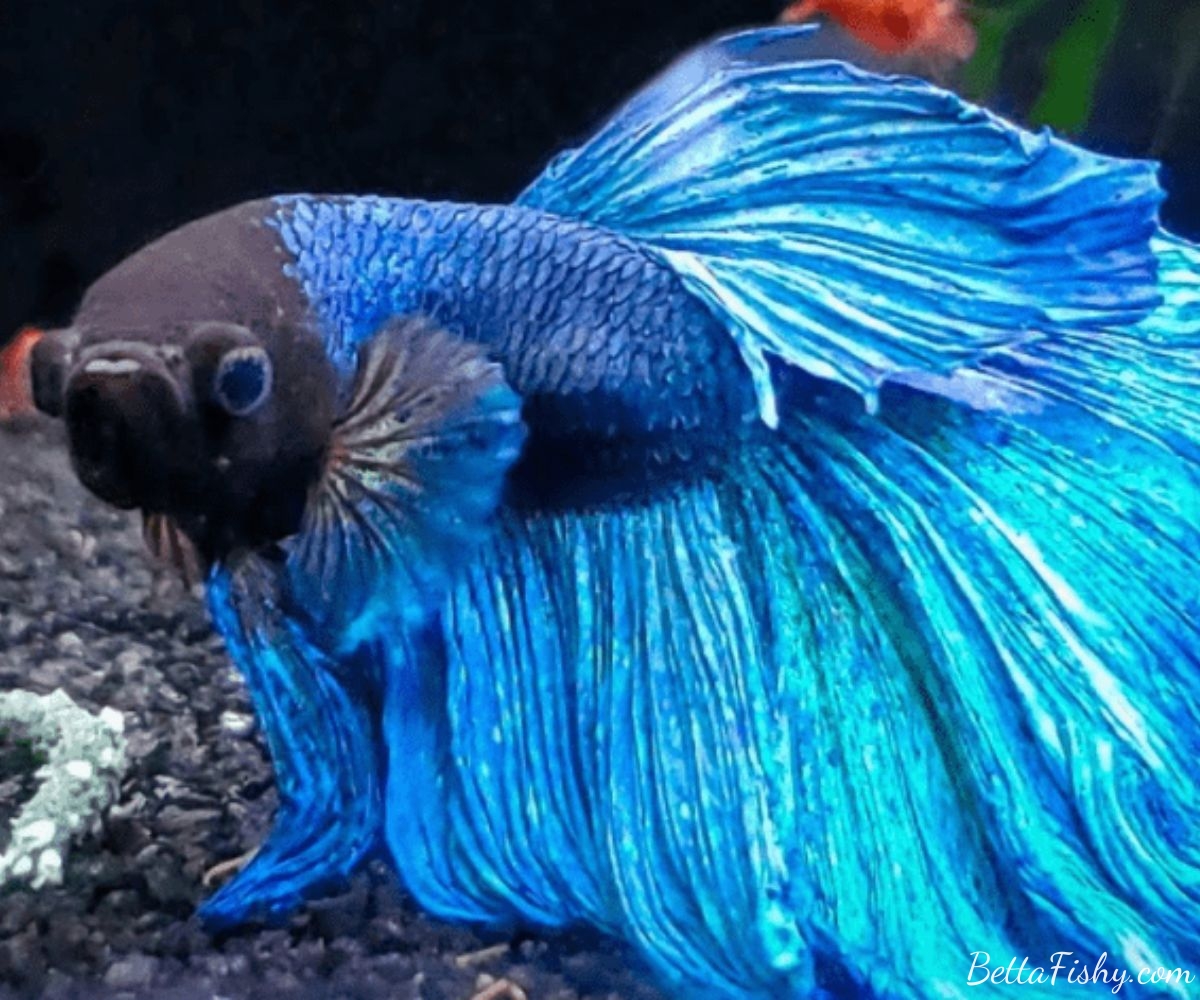Betta fish, also known as Siamese fighting fish, have captured the hearts of aquarium enthusiasts with their vibrant colors and dynamic personalities. These beautiful creatures are a popular choice for hobbyists looking to add some life to their tanks. However, one intriguing, and sometimes concerning, aspect of their behavior is the question of whether can betta fish have seizures ?
In this article, we will delve into the enigmatic world of potential betta fish seizures. We will explore scientific evidence, anecdotal accounts, potential causes and triggers, appropriate responses, and preventive measures. Prepare to uncover the truth about this phenomenon and gain insights into providing your betta fish with the best possible care.
Before we dive into the topic of potential betta fish seizures, it is essential to understand their normal behavior. Betta fish are active and inquisitive creatures, constantly exploring their environment and interacting with tankmates. They are known for their territorial displays and graceful swimming patterns. However, certain behaviors may indicate a potential seizure, including erratic movements, loss of equilibrium, and unusual posturing.
Understanding the Behavior of Betta Fish: What is Normal and What is Not
As mentioned earlier, betta fish are naturally active and curious creatures. They enjoy exploring their surroundings and interacting with other fish. However, it is crucial to observe your betta fish’s behavior closely to identify any changes that may indicate a potential seizure.
Erratic Movements
One of the most common signs of a betta fish seizure is sudden, jerky, and uncontrolled movements. This can include darting, spinning, or shaking. These movements may seem out of character for your betta fish and can be alarming to witness.
Loss of Equilibrium
Difficulty maintaining balance is another indicator of a potential seizure in betta fish. This can lead to tilted swimming or frequent falls. You may notice your betta fish struggling to stay upright or constantly tipping over.
Unusual Posturing
Abnormal body postures can also be a sign of a seizure in betta fish. This can include upside-down swimming, leaning against objects, or floating motionless. These behaviors can be distressing for both the fish and the owner.
Can Betta Fish Have Seizures? Evidence

While there is limited scientific research on betta fish seizures, there is evidence to suggest that they do occur in these fish. In this section, we will explore different sources of evidence, including scientific studies, insights from veterinarians, and experiences of aquarium owners.
Scientific Studies
A study published in the Journal of Veterinary Medicine and Animal Health examined the occurrence of seizures in betta fish. The researchers found that out of 100 betta fish observed, 11% experienced seizures. They also noted that the majority of these seizures occurred in fish that were kept in small tanks with poor water quality.
Another study published in the Journal of Fish Diseases looked at the prevalence of seizures in betta fish in Thailand. The researchers found that out of 500 betta fish examined, 8% had experienced seizures. They also identified several potential causes, including environmental factors and underlying diseases.
Veterinarian Insights
Veterinarians who specialize in fish care have also reported cases of betta fish seizures. According to Dr. Helen Burns, a veterinarian at Sydney Animal Hospitals, seizures in betta fish can be caused by a variety of factors, including genetics, environmental stressors, and underlying health issues.
Dr. Burns also notes that betta fish are prone to developing neurological disorders, which can manifest as seizures. These disorders can be caused by genetic defects or infections such as bacterial or fungal infections.
Aquarium Owner Experiences
Many aquarium owners have shared their experiences with betta fish seizures online. These anecdotal accounts provide valuable insights into the frequency and potential causes of seizures in betta fish.
Some owners have reported that their betta fish experienced seizures after being exposed to external toxins, such as cleaning chemicals or medications. Others have noticed a correlation between poor water quality and the occurrence of seizures in their fish.
Causes and Triggers

While there is no definitive answer to what causes seizures in betta fish, there are several potential triggers that may contribute to this phenomenon. In this section, we will explore some of the most common causes and triggers of betta fish seizures.
Environmental Factors
Betta fish are sensitive creatures, and changes in their environment can cause stress, which can lead to seizures. Factors such as poor water quality, sudden changes in temperature or pH levels, and overcrowding can all contribute to stress and trigger seizures in betta fish.
It is essential to maintain a clean and stable environment for your betta fish to prevent unnecessary stress and potential seizures. Regular water changes, proper filtration, and appropriate tank size are crucial for the well-being of your fish.
Genetics and Underlying Diseases
As mentioned earlier, betta fish can be prone to developing neurological disorders due to genetic defects or infections. These underlying health issues can manifest as seizures in betta fish. It is essential to purchase betta fish from reputable breeders and monitor their health closely to identify any potential issues early on.
If you suspect that your betta fish may have an underlying health condition, it is best to consult with a veterinarian who specializes in fish care. They can provide a proper diagnosis and recommend appropriate treatment options.
External Toxins and Infections
Exposure to external toxins, such as cleaning products or medications, can also trigger seizures in betta fish. It is crucial to use aquarium-safe products and follow dosage instructions carefully when treating your fish for any infections.
Additionally, betta fish are susceptible to bacterial and fungal infections, which can affect their neurological health. It is essential to maintain a clean and healthy environment for your fish to prevent these infections from occurring.
What to Do When Your Betta Has a Seizure

Witnessing your betta fish having a seizure can be distressing, but it is crucial to remain calm and take appropriate action. In this section, we will discuss what you should do when your betta fish has a seizure.
Immediate Action
If you notice your betta fish having a seizure, the first thing you should do is turn off any filters or pumps in the tank. This will prevent your fish from getting injured during the episode. You should also dim the lights in the room to reduce stress on your fish.
It is essential to monitor your betta fish closely during the seizure and make sure they do not get stuck in any decorations or plants in the tank. Once the seizure has ended, you can turn the filters and lights back on and observe your fish for any signs of distress.
Seeking Professional Help
If your betta fish experiences frequent seizures or shows other concerning symptoms, such as loss of appetite or difficulty swimming, it is best to seek professional help. A veterinarian who specializes in fish care can provide a proper diagnosis and recommend appropriate treatment options.
Preventing Betta Fish Seizures
As mentioned earlier, creating a healthy environment for your betta fish is crucial in preventing seizures. In this section, we will discuss some essential steps you can take to ensure your betta fish’s well-being.
Tank Size and Setup
Betta fish require a minimum tank size of 5 gallons to thrive. A larger tank provides more space for your fish to swim and explore, reducing stress levels. It also allows for better water quality and easier maintenance.
When setting up your betta fish’s tank, make sure to provide plenty of hiding spots and plants for them to rest and feel secure. Bettas are territorial fish and may become stressed if they do not have enough space to claim as their own.
Water Quality
Maintaining good water quality is crucial for the health of your betta fish. Regular water changes, proper filtration, and testing water parameters are essential in preventing stress and potential seizures. Make sure to use a water conditioner to remove any harmful chemicals from tap water before adding it to the tank.
Diet and Nutrition
A balanced and nutritious diet is essential for the overall health of your betta fish. Make sure to feed them high-quality pellets or flakes specifically designed for betta fish. You can also supplement their diet with live or frozen foods, such as bloodworms or brine shrimp.
Conclusion
In conclusion, can Betta fish have seizures? The answer is yes, but no need to worry; it is a relatively common phenomenon in these fish species. While there is no definitive answer to what causes seizures in betta fish, there are several potential triggers that can be addressed to prevent them from happening.
It is essential to understand your betta fish’s normal behavior and monitor them closely for any changes that may indicate a potential seizure. Creating a healthy and stress-free environment for your fish is crucial in preventing seizures and ensuring their overall well-being.
Remember, if you notice any concerning symptoms or behaviors in your betta fish, it is best to seek professional help. With proper care and attention, you can provide your betta fish with a happy and healthy life.


